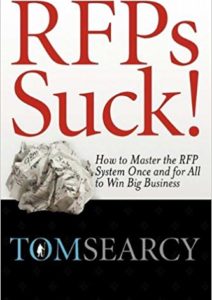The B2B buying process is shifting, and as a result, selling as we know it has shifted, too. Until lately, salespeople had a lot of control. Armed with a territory, price structure, and targets, they could roam, free-range style, so long as they managed their territory and produced results. Sales management provided oversight, bridged with corporate, and could be hands-off unless support was needed. But today sellers are different — and sales managers need to adapt.
The “State of Sales Productivity 2015” study by Docurated found that only one-third of a sales rep’s day is actually spent selling, while another third of their time is spent searching for or creating content. Twenty percent goes to reporting, administrative, and CRM-related tasks. According to an IKO System study, 82% of sales reps now feel challenged by the amount of data and the time it takes to research a prospect.
If you want to thrive in this new era of sales, it is now up to you as a sales manager to think of territories, customers, and products as if they were a financial portfolio that you’ve invested in. You need to monitor the people, the money, and the allocation of time and resources expended in order to be sure things are moving along on track.
Since your salespeople are part of that investment, you have owned their calendar, workflow, and time management. This is not micromanagement, because the rep doesn’t “own” the investment — the company does. After the death of selling as we know it, your role must adapt.
Here are 7 responsibilities that you own now:
Selecting Targets
Salespeople are capable and willing to talk to anyone, so you have to steer them to the right people. Are they talking to the decision-makers who have authority and budget for expenditures? With your sales leadership, define and use a filter for the most likely candidates for successful deals.
Defining Priorities
Help your sales force prioritize what opportunities they pursue and how much time and effort they spend on them. Help them understand which leads are key opportunities — real and relevant to the current circumstances.
Defining Time Guidelines
Set and enforce guidelines for how sellers spend their time. Meandering aimlessly through territory or conducting leisurely “check-in” sweeps is unproductive. Salespeople should be directed to take a strategic and surgical approach to identify and pursue targets.
Monitoring Compliance
You are responsible for providing data that allows you and other leaders in the organization to monitor what is happening in the marketplace regarding customers, competitors and surrounding regulations and technology shifts. Consistency in the execution of a sales process gives data to the organization that clarifies what works and what does not. We’re not talking about activity management and monitoring for its own sake. Your focus should be working toward compliance in the sales process to protect the integrity of the data captured so everyone has relevant data for good decision-making.
Navigating the Terrain
Your sales process is the basis of action, but it’s only the start — a two-dimensional representation of a sequential process. The third dimension is using data (including variant data) from the sales process to assess the marketplace. Sometimes you’ll need a covert op — a team of select salespeople — to find out new information. Then it’s up to you to analyze what they bring back and use that information to up the game.
Securing Resources
There will be occasions when competing priorities (including those of other departments) derail progress on landing business. It’s your responsibility to make sure significant opportunities are visible to leadership. You need to take the actions that secure these deals from impeding parties inside your organization, and see that your people have the resources they need for a successful sale.
Knowing When (and When NOT) to Expedite
It’s your job to expedite—and to know when not to expedite. Like the “boy who cried wolf,” people may become jaded to repetitive intervention on your part. ” For the sake of the organization, your reputation (and that of your team), you’ll need to decide when an opportunity needs to be expedited, and when everyone should simply follow the normal sales process.


















